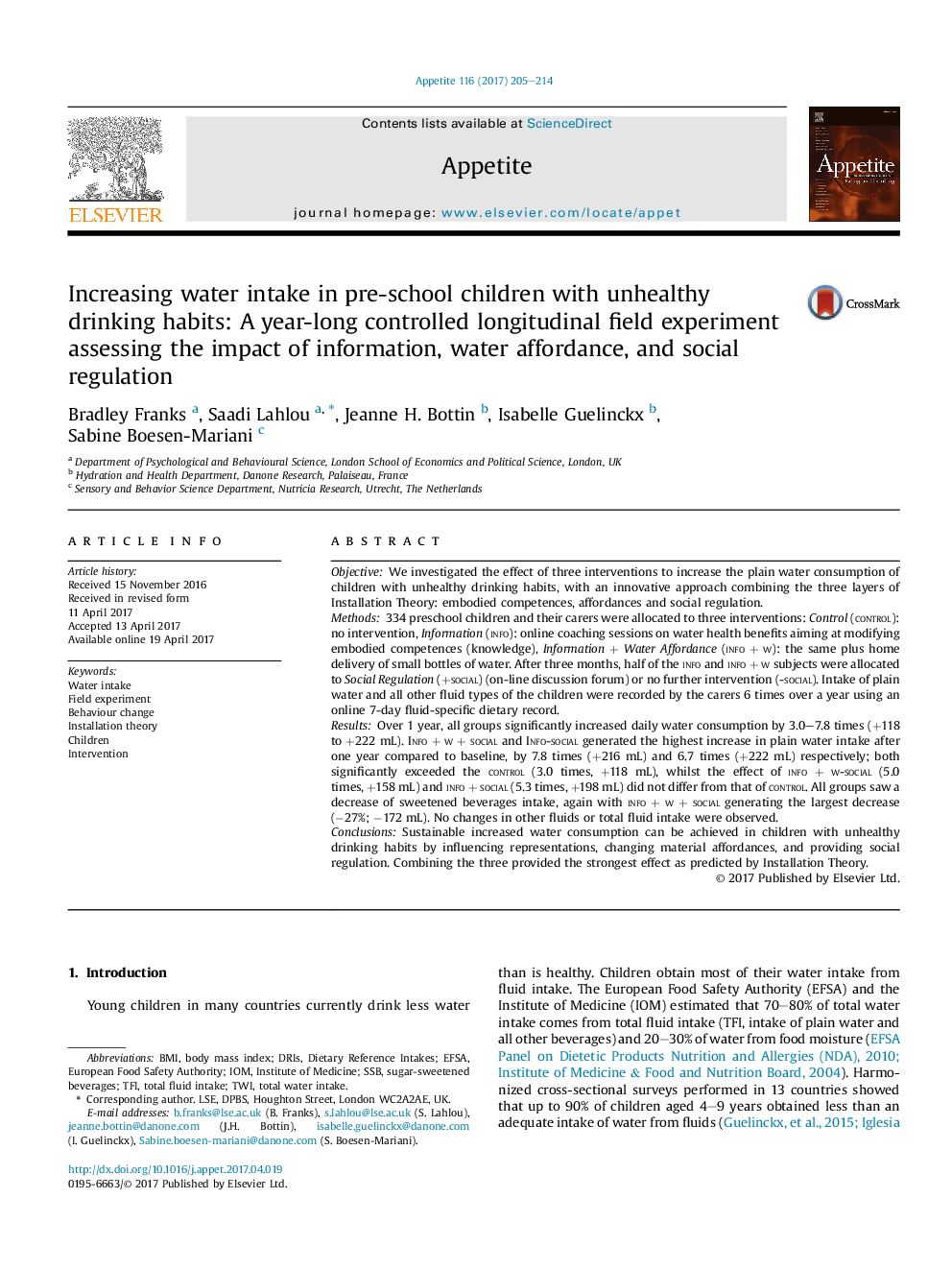| کد مقاله | کد نشریه | سال انتشار | مقاله انگلیسی | نسخه تمام متن |
|---|---|---|---|---|
| 5043999 | 1475364 | 2017 | 10 صفحه PDF | دانلود رایگان |
ObjectiveWe investigated the effect of three interventions to increase the plain water consumption of children with unhealthy drinking habits, with an innovative approach combining the three layers of Installation Theory: embodied competences, affordances and social regulation.Methods334 preschool children and their carers were allocated to three interventions: Control (control): no intervention, Information (info): online coaching sessions on water health benefits aiming at modifying embodied competences (knowledge), Information + Water Affordance (info + w): the same plus home delivery of small bottles of water. After three months, half of the info and info + w subjects were allocated to Social Regulation (+social) (on-line discussion forum) or no further intervention (-social). Intake of plain water and all other fluid types of the children were recorded by the carers 6 times over a year using an online 7-day fluid-specific dietary record.ResultsOver 1 year, all groups significantly increased daily water consumption by 3.0-7.8 times (+118 to +222 mL). Info + w + social and Info-social generated the highest increase in plain water intake after one year compared to baseline, by 7.8 times (+216 mL) and 6.7 times (+222 mL) respectively; both significantly exceeded the control (3.0 times, +118 mL), whilst the effect of info + w-social (5.0 times, +158 mL) and info + social (5.3 times, +198 mL) did not differ from that of control. All groups saw a decrease of sweetened beverages intake, again with info + w + social generating the largest decrease (â27%; â172 mL). No changes in other fluids or total fluid intake were observed.ConclusionsSustainable increased water consumption can be achieved in children with unhealthy drinking habits by influencing representations, changing material affordances, and providing social regulation. Combining the three provided the strongest effect as predicted by Installation Theory.
Journal: Appetite - Volume 116, 1 September 2017, Pages 205-214
